89 have author last names that start with G have author last names that start with G

Thomas Crawford (1813–1857) was the first American sculptor to study in Italy for an extended period of time. There, along with other artists—Greenough, Story, and Powers—he was part of a group that made prolific contributions to American neoclassical art. He is best known as the sculptor of much of the statuary and bas-reliefs of our nation’s Capitol: the pediment figures over the Senate and of the House of Representatives, and the bronze Freedom atop the Capitol’s dome.
In writing this biography, Robert Gale was given exclusive access to all of Crawford’s personal papers by the sculptor’s granddaughter. An appendix lists extant works of Crawford and where they are found, and several plates illustrate his sculpture.

The Shale Dilemma brings together experts working at the forefront of shale gas issues on four continents to explain how countries reach their decisions on shale development. Using a common analytical framework, the authors identify both local factors and transnational patterns in the decision-making process. Eight case studies reveal the trade-offs each country makes as it decides whether to pursue, delay, or block development. Those outcomes in turn reflect the nature of a country’s political process and the power of interest groups on both sides of the issue. The contributors also ask whether the economic arguments made by the shale industry and its government supporters have overshadowed the concerns of local communities for information on the effects of shale operations, and for tax policies and regulations to ensure broad-based economic development and environmental protection.
As an informative and even-handed account, The Shale Dilemma recommends practical steps to help countries reach better, more transparent, and more far-sighted decisions.
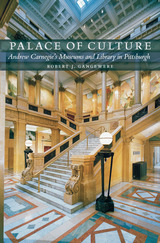
Andrew Carnegie is remembered as one of the world’s great philanthropists. As a boy, he witnessed the benevolence of a businessman who lent his personal book collection to laborer’s apprentices. That early experience inspired Carnegie to create the “Free to the People” Carnegie Library in 1895 in Pittsburgh, Pennsylvania. In 1896, he founded the Carnegie Institute, which included a music hall, art museum, and science museum. Carnegie deeply believed that education and culture could lift up the common man and should not be the sole province of the wealthy. Today, his Pittsburgh cultural institution encompasses a library, music hall, natural history museum, art museum, science center, the Andy Warhol Museum, and the Carnegie International art exhibition.
In Palace of Culture, Robert J. Gangewere presents the first history of a cultural conglomeration that has served millions of people since its inception and inspired the likes of August Wilson, Andy Warhol, and David McCullough. In this fascinating account, Gangewere details the political turmoil, budgetary constraints, and cultural tides that have influenced the caretakers and the collections along the way. He profiles the many benefactors, trustees, directors, and administrators who have stewarded the collections through the years. Gangewere provides individual histories of the library, music hall, museums, and science center, and describes the importance of each as an educational and research facility.
Moreover, Palace of Culture documents the importance of cultural institutions to the citizens of large metropolitan areas. The Carnegie Library and Institute have inspired the creation of similar organizations in the United States and serve as models for museum systems throughout the world.



“I am reminded of the Argentinean writers Julio Cortázar and Jorge Luis Borges, but with sunglasses and in California. The Flying Garcias is a sure voice and a fine book.”
—Alberto Ríos
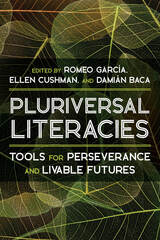
A Global Analysis of Sites, Practices, and Processes of Decolonial and Indigenous Meaning-Making
Decolonial projects can end up reinforcing dominant modes of thinking by shoehorning understandings of Indigenous and non-Western traditions within Eurocentric frameworks. The pluralization of literacies and the creation of so-called alternative rhetorics accepts that there is a totalizing reality of rhetoric and literacy. This volume seeks to decenter these theories and to engage Indigenous contexts on their own terms, starting with the very tools of representation. Language itself can disrupt normative structures and create pluriversal possibilities. The volume editors and contributors argue for epistemic change at the level of the language and media that people use to represent meaning. The range of topics covered includes American Indian and Indigenous representations, literacies, and rhetorics; critical revisionist historiography and comparative rhetorics; delinking colonial literacies of cartographic power and modernity; “northern” and “southern” hemispheric relations; and theorizations of/from oceanic border spaces.

“A great poem of this end of our century. It is masterfully structured in recurring themes and voices which build on and off each other. Gardinier is above all a poet whose language and images are completely integrated so that in Keats's words, every rift is laden with ore. I found this a thrilling poem to read.” --Adrienne Rich

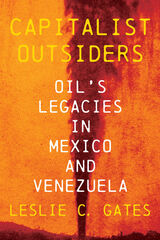
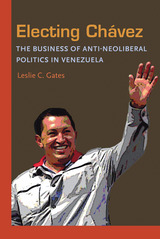
In Electing Chávez, Leslie C. Gates examines how Chávez won over voters and even obtained the secret allegiance of a group of business “elite outliers,” with a reinterpretation of the relationship between business and the state during Venezuela’s era of two-party dominance (1959-1998). Through extensive research on corruption and the backgrounds of political leaders.
Gates tracks the rise of business-related corruption scandals and documents how business became identified with Venezuela’s political establishment. These trends undermined the public’s trust in business and converted business opposition into an asset for Chávez. This long history of business-tied politicians and the scandals they often provoked also framed the decisions of elite outliers. As Gates reveals, elite outliers supported Chávez despite his anti-neoliberal stance because they feared that the success of Chávez’s main rival would deny them access to Venezuela’s powerful oil state.
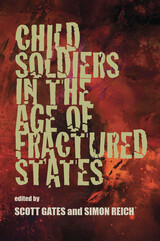
The contributors seek to eliminate myths of historic or culture-based violence, and instead look to common traits of chronic poverty and vulnerable populations. Individual essays examine topics such as: the legal and ethical aspects of child soldiering; internal UN debates over enforcement of child protection policies; economic factors; increased access to small arms; displaced populations; resource endowments; forced government conscription; rebel-enforced quota systems; motivational techniques employed in recruiting children; and the role of girls in conflict.
The contributors also offer viable policies to reduce the recruitment of child soldiers such as the protection of refugee camps by outside forces, “naming and shaming,” and criminal prosecution by international tribunals. Finally, they focus on ways to reintegrate former child soldiers into civil society in the aftermath of war.
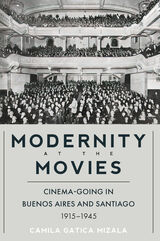

In this process of reform, neither the administration of schools nor school content was really decentralized from the Ministry of Education, nor did students gain equality of educationaly opportunity or better schooling outcomes. These failures of the post-welfare model are due partly to Chile’s political and economic problems of the era, but are also evidence of flaws at its core, at least where education is concerned.
The study presents data for an original survey of 726 households in Greater Santiago that finds more evidence for social and economic stratification among Chilean schools than past analyses have shown. Gauri finds that information about school quality, a sense of entitlement, and the use of specific search techniques increase the odds that a child attends a school with high achievement scores. Gauri offers some insights as he supports the criticism that market forces might exacerbate inequalities without necessarily generating clear gains in academic achievement. In the new system, many parents continued to be ill-informed about differences among schools, nonacademic factors played a major role in school selection, schools appeared to use entrance exams to practice a form of “creaming,” and parental wealth was a strong determinant of whether families were willing and able to take full advantage of choice programs.
These are extremely timely findings, especially in light of the current debate over school choice and vouchers in the United States. Because the United States has little experience in school choice, School Choice in Chile presents a convincing and necessary report on an almost twenty-year-old experience with information from which all nations can learn. Parents, policy analysts in education and social welfare, as well as those studying political science, public policy, and education, will find it extremely useful.
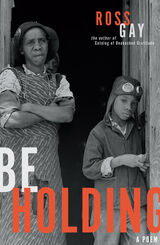
Winner, 2021 Ohioana Book Award in Poetry
Be Holding is a love song to legendary basketball player Julius Erving—known as Dr. J—who dominated courts in the 1970s and ‘80s as a small forward for the Philadelphia ‘76ers. But this book-length poem is more than just an ode to a magnificent athlete. Through a kind of lyric research, or lyric meditation, Ross Gay connects Dr. J’s famously impossible move from the 1980 NBA Finals against the Los Angeles Lakers to pick-up basketball and the flying Igbo and the Middle Passage, to photography and surveillance and state violence, to music and personal histories of flight and familial love. Be Holding wonders how the imagination, or how our looking, might make us, or bring us, closer to each other. How our looking might make us reach for each other. And might make us be reaching for each other. And how that reaching might be something like joy.
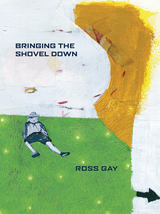
Bringing the Shovel Down is a re-imagination of the violent mythologies of state and power.
"These poems speak out of a global consciousness as well as an individual wisdom that is bright with pity, terror, and rage, and which asks the reader to realize that she is not alone--that the grief he carries is not just his own. Gay is a poet of conscience, who echoes Tomas Transtromer's 'We do not surrender. But want peace.'"
--Jean Valentine
"Ross Gay is some kind of brilliant latter-day troubadour whose poetry is shaped not only by yearning but also play and scrutiny, melancholy and intensity. I might be shocked by the bold, persistent love throughout Bringing the Shovel Down if I wasn’t so wooed and transformed by it."
--Terrance Hayes
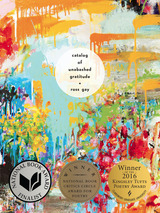
Winner, 2016 Kingsley Tufts Poetry Prize
Finalist, 2015 National Book Award, poetry category
Finalist, 2015 NAACP Image Awards, poetry category
Catalog of Unabashed Gratitude is a sustained meditation on that which goes away—loved ones, the seasons, the earth as we know it—that tries to find solace in the processes of the garden and the orchard. That is, this is a book that studies the wisdom of the garden and orchard, those places where all—death, sorrow, loss—is converted into what might, with patience, nourish us.
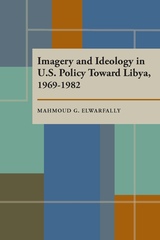
How close to reality was the official U.S. image of Libya through the Nixon-Ford, Carter, and Reagan administrations? After recounting the actions of Libya and the United States in the Middle East since 1969, ElWahrfally concludes that it was very far from accurate.
Using personal interviews as well as scholarly research, ElWarfally demonstrates that recent U.S. relations with Libya, regardless of rhetoric, have been primarily determined by whether or not Libya serves U.S. interests in the region: maintaining access to Middle Eastern oil, protecting Israel, and limiting Soviet expansionism. Just as the official image of Libya has veered from one extreme to another, U.S. policy responses have also often conflicted with the publicly stated view.
The Nixon administration was at first friendly toward Libya, even though Qaddafi ejected the U.S. military and nationalized the oil industry, because of Libya's avowed anticommunism and U.S. dependence on Libyan oil. After 1976, the official U.S. image was more hostile, and Libya was attacked as a destabilizing influence in the Middle East. Outrage reached new heights during the Reagan administration, which made several unsuccessful covert attempts to unseat Qaddafi, mounted an embargo and military provocations, and in 1986 bombed Libya on a pretext later revealed to be false.
Combining theory with current history, this book demonstrates that fixed ideas and misinterpretation of events may have more to do with foreign policy behavior than facts do. Suggesting a new direction for research into relations between the superpowers and the Third World, it will interest scholars, students, and policymakers concerned with the Middle East.
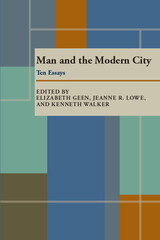
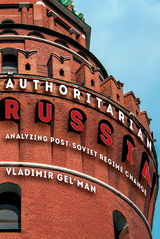
Vladimir Gel’man examines regime change in Russia from the collapse of the Soviet Union in 1991 to the present day, systematically presenting theoretical and comparative perspectives of the factors that affected regime changes and the authoritarian drift of the country. After the fall of the Soviet Union, Russia’s national political elites aimed to achieve their goals by creating and enforcing of favorable “rules of the game” for themselves and maintaining informal winning coalitions of cliques around individual rulers. In the 1990s, these moves were only partially successful given the weakness of the Russian state and troubled post-socialist economy. In the 2000s, however, Vladimir Putin rescued the system thanks to the combination of economic growth and the revival of the state capacity he was able to implement by imposing a series of non-democratic reforms. In the 2010s, changing conditions in the country have presented new risks and challenges for the Putin regime that will play themselves out in the years to come.

Lena’s father wants her to settle down and give up show business, but she’s entranced by the music and culture of the Hill. It’s a mecca for jazz singers and musicians, and nightspots like the Crawford Grill attract crowds of blacks and whites. Lena table-hops with local jazzmen as her father chaperones her through the clubs where she‘ll later perform. Singing makes her feel alive, and to her father’s dismay, reviewers can’t get enough of her. Duke Ellington adores her, Billy Strayhorn can’t wait to meet her, and she becomes “all the rage” in clubs and Hollywood for her beauty and almost-whiteness. Her signature version of “Stormy Weather” makes her a legend. But after sitting around for years at MGM as the studio heads try to figure out what to do with her, she isn’t quite sure what she’s worth.
Marie and Josiah follow Lena’s career in Hollywood and New York through movie magazines and the Pittsburgh Courier. Years pass until their lives are brought together again when Josiah is arrested for the murder of a white man. Marie and Lena decide they must get Josiah out of prison—whatever the personal cost.
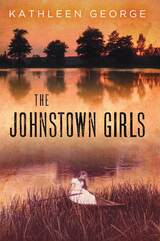
A century later, Pittsburgh Post-Gazette reporters Ben Bragdon and Nina Collins set out to interview 103-year-old Ellen for Ben’s feature article on the flood. When asked the secret to her longevity, Ellen simply attributes it to “restlessness.” As we see, that restlessness is fueled by Ellen’s innate belief that her twin sister Mary, who went missing in the flood, is somehow still alive. Her story intrigues Ben, but it haunts Nina, who is determined to help Ellen find her missing half.
Novelist Kathleen George masterfully blends a history of the Johnstown flood into her heartrending tale of twin sisters who have never known the truth about that fateful day in 1889—a day that would send their lives hurtling down different paths. The Johnstown Girls is a remarkable story of perseverance, hard work, and never giving up hope in the face of seemingly insurmountable odds. It’s also a tribute to the determination and indomitable spirit of the people of Johnstown through one hundred years, three generations, and three different floods.
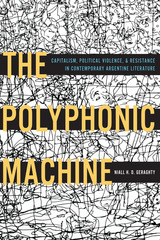
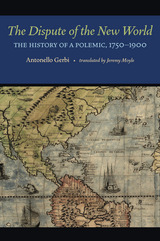
Translated in 1973, The Dispute of the New World is the definitive study of this debate. Antonello Gerbi scrutinizes each contribution to the debate, unravels the complex arguments, and reveals their inner motivations. As the story of the polemic unfolds, moving through many disciplines that include biology, economics, anthropology, theology, geophysics, and poetry, it becomes clear that the subject at issue is nothing less than the totality of the Old World versus the New, and how each viewed the other at a vital turning point in history.
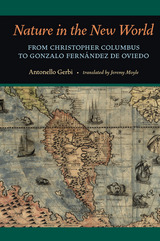
Initial chapters are devoted to the writings of Columbus, Vespucci, Cortés, Verrazzano, and others. The second portion of the book concerns the Historia general y natural de las Indias of Gonzalo Fernández de Oviedo, a work commissioned by Charles V of Spain in 1532 but not published in its entirety until the 1850s. Antonello Gerbi contends that Oviedo, a Spanish administrator who lived in Santo Domingo, has been unjustly neglected as a historian. Gerbi shows that Oviedo was a major authority on the culture, history, and conquest of the New World.

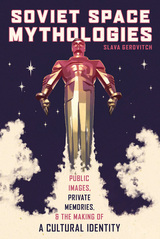
From the start, the Soviet human space program had an identity crisis. Were cosmonauts heroic pilots steering their craft through the dangers of space, or were they mere passengers riding safely aboard fully automated machines? Tensions between Soviet cosmonauts and space engineers were reflected not only in the internal development of the space program but also in Soviet propaganda that wavered between praising daring heroes and flawless technologies. Soviet Space Mythologies explores the history of the Soviet human space program within a political and cultural context, giving particular attention to the two professional groups—space engineers and cosmonauts—who secretly built and publicly represented the program. Drawing on recent scholarship on memory and identity formation, this book shows how both the myths of Soviet official history and privately circulating counter-myths have served as instruments of collective memory and professional identity. These practices shaped the evolving cultural image of the space age in popular Soviet imagination. Soviet Space Mythologies provides a valuable resource for scholars and students of space history, history of technology, and Soviet (and post-Soviet) history.
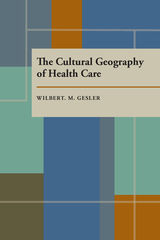
In health care delivery and health care research, basic concepts of cultural behavior are ignored—at a high personal and financial cost—because both fields are dominated by technical solutions and quantitative analysis. They have little use for what is often regarded as irrelevant information.
In this wide-ranging book, written for students and non-specialists, Gesler applies cultural geography to health care and shows that throughout the world, in western and developing countries alike, the social sciences can inform the medical sciences nd make them more effective and less expensive.


Calling from the Scaffold is a collection of poems about connecting and not connecting—of approaching the brink of connecting. It’s about paying tribute and salvaging and gratitude. The voices vary in their longings: we hear from men and women, the young and no longer young. Nature often is there to help them out. The poet, also a writer of fiction and nonfiction, is interested in story, in his characters’ ability to move down the road, searching for their best selves, best home, putting together the pieces that move them toward that famous happy ending.
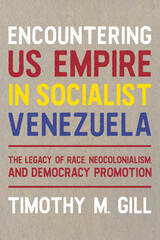
Since the end of World War II, the United States has come to dominate the world economically and politically, leading many to describe the United States as an empire. Scholars have analyzed how the US government has worked through international financial institutions, its Central Intelligence Agency, and outright warfare to achieve its will. In this book, Timothy M. Gill spotlights how the US government also worked through democracy promotion to undermine governments abroad, including in Venezuela. President Hugo Chávez, who ruled from 1999 until his death in 2013, was among the democratically elected Latin American state leaders who embraced socialism and challenged the idea of US global power. Gill shows how US government agencies funded and trained opposition parties and activists, and how such intervention often was justified in neocolonial and racist terms. Through analysis of documents obtained through Freedom of Information Act requests, embassy cables, and interviews with US government and Venezuelan nonprofit members, Gill details such operations and the imperial thinking behind them.
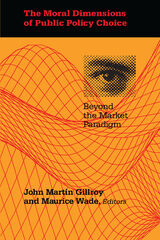
Combining philosophy with practical politics, an expanding area of policy studies applies moral precepts, critical principles, and conventional values to collective decisions. This evolving new approach to policy analysis asserts that the same variety of ethical principles available to the individual are also available to make collective decisions in the public interest and should be used.
Although policy analysis has long been dominated by assumptions originally developed for the examination of markets, such as efficiency, these essays by leading scholars - the best work done in the field over the past three decades - explore alternatives to the “market paradigm” and show how moral discrimination and choice can extend beyond the individual to encompass public decisions.
Chapters by John Martin Gillroy and Maurice Wade review the political philosophies of Immanuel Kant and David Hume as backgrounds for the development of modern concepts of public policy choice. They present this anthology as a first step in codifying options, arguments, and methods within this important developing area of policy studies.
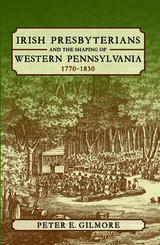
Rural Presbyterian Irish church elders emphasized community and ethnoreligious group solidarity in supervising congregants’ morality. Improved transportation and the greater reach of the market eliminated near-subsistence local economies and hastened the demise of religious traditions brought from Ireland. Gilmore contends that ritual and daily religious practice, as understood and carried out by migrant generations, were abandoned or altered by American-born generations in the context of major economic change.

Politics may be the art of compromise, but accepting a compromise can be hazardous to a politician’s health. Politicians worry about betraying faithful supporters, about losing the upper hand on an issue before the next election, that accepting half a loaf today can make it harder to get the whole loaf tomorrow. In his original interpretation of competition between parties and between Congress and the president, Gilmour explains the strategies available to politicians who prefer to disagree and uncovers the lost opportunities to pass important legislation that result from this disagreement.
Strategic Disagreement, theoretically solid and rich in evidence, will enlighten Washington observers frustrated by the politics of gridlock and will engage students interested in organizational theory, political parties, and divided government.
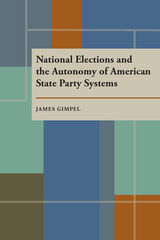
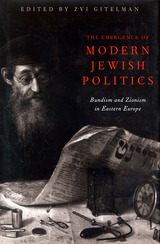
While Zionism achieved its primary aim—the founding of a Jewish state—the Jewish Labor Bund has not only practically disappeared, but its ideals of socialism and secular Jewishness based in the diaspora seem to have failed. Yet, as Zvi Gitelman and the various contributors argue, it was the Bund that more profoundly changed the structure of Jewish society, politics, and culture.
In thirteen essays, prominent historians, political scientists, and professors of literature discuss the cultural and political contexts of these movements, their impact on Jewish life, and the reasons for the Bund’s demise, and they question whether ethnic minorities are best served by highly ideological or solidly pragmatic movements.
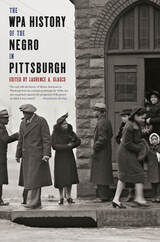
The monumental American Guide Series, published by the Federal Writers’ Project, provided work to thousands of unemployed writers, editors, and researchers in the midst of the Great Depression. Featuring books on states, cities, rivers, and ethnic groups, it also opened an unprecedented view into the lives of the American people during this time. Untold numbers of projects in progress were lost when the program was abruptly shut down by a hostile Congress in 1939.
One of those, "The Negro in Pittsburgh," lay dormant in the Pennsylvania State Library until it was microfilmed in 1970. The WPA History of the Negro in Pittsburgh marks the first publication of this rich body of information. This unique historical study of the city’s black population features articles on civil rights, social class, lifestyle, culture, folklore, and institutions from colonial times through the 1930s.
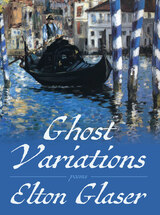
Elton Glaser’s ninth book of poems is haunted by the loss of his wife, each April bringing back the memory of her death. The opening line confesses the struggle to find a language for this grief: “I’m learning to speak in the accents of adieu.” As the book progresses through the seasons, it evokes the places that remind him of their times together, in the South of their youths, in the Midwest of their long marriage, and in their travels here and abroad. And yet there is also another strain that keeps breaking through, the particulars of joy in family and the natural world, grandsons and “swaggering lilies,” and a swan like “a sullen bride in her white finery.” With an irrepressible wit and a music that enlivens his lines in both celebration and elegy, Glaser never forgets that, as Wallace Stevens said, “Memory without passion would be better lost.”
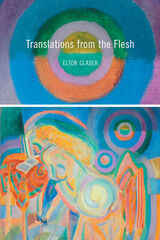
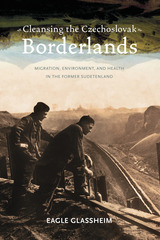
Prior to their expulsion in 1945, ethnic Germans had inhabited the Sudeten borderlands for hundreds of years, with deeply rooted local cultures and close, if sometimes tense, ties with Bohemia’s Czech majority. Cynically, if largely willingly, harnessed by Hitler in 1938 to his pursuit of a Greater Germany, the Sudetenland’s three million Germans became the focus of Czech authorities in their retributive efforts to remove an alien ethnic element from the body politic—and claim the spoils of this coal-rich, industrialized area. Yet, as Glassheim reveals, socialist efforts to create a modern utopia in the newly resettled “frontier” territories proved exceedingly difficult. Many borderland regions remained sparsely populated, peppered with dilapidated and abandoned houses, and hobbled by decaying infrastructure. In the more densely populated northern districts, coalmines, chemical works, and power plants scarred the land and spewed toxic gases into the air. What once was a diverse religious, cultural, economic, and linguistic “contact zone,” became, according to many observers, a scarred wasteland, both physically and psychologically.
Glassheim offers new perspectives on the struggles of reclaiming ethnically cleansed lands in light of utopian dreams and dystopian realities—brought on by the uprooting of cultures, the loss of communities, and the industrial degradation of a once-thriving region. To Glassheim, the lessons drawn from the Sudetenland speak to the deep social traumas and environmental pathologies wrought by both ethnic cleansing and state-sponsored modernization processes that accelerated across Europe as a result of the great wars of the twentieth century.
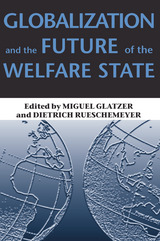
In the last quarter of the twentieth century, the global political economy has undergone a profound transformation. Democracy has swept the globe, and both rich and developing nations must compete in an increasingly integrated world economy.
How are social welfare policies being affected by this wave of economic globalization? Leading researchers explore the complex question in this new comparative study. Shifting their focus from the more commonly studied, established welfare states of northwestern Europe, the authors of Globalization and the Future of the Welfare State examine policy development in the middle-income countries of southern and eastern Europe, Latin America, Russia, and East Asia.
Previous investigations into the effects of globalization on welfare states have generally come to one of two conclusions. The first is that a global economy undermines existing welfare states and obstructs new developments in social policy, as generous provisions place a burden on a nation's resources and its ability to compete in the international marketplace. In contrast, the second builds on the finding that economic openness is positively correlated with greater social spending, which suggests that globalization and welfare states can be mutually reinforcing.
Here the authors find that globalization and the success of the welfare state are by no means as incompatible as the first view implies. The developing countries analyzed demonstrate that although there is great variability across countries and regions, domestic political processes and institutions play key roles in managing the disruptions wrought by globalization.


Excerpt from Flatlanders and Ridgerunners:
Out-Riddling the Judge
Back in Prohibition my uncle made moonshine. His name was Moses Kenny and his whiskey--they called it “White Mule” was the best in the county. Well, the feds got after him and finally they arrested him. Took him to a federal judge down in Philadelphia.
Now, the judge liked a good time and thought he’d have a little fun with this hick from the mountains. When Uncle came into court, he said, “are you the Moses who can make the sun dark?”
Moses looked at him and said slowly, “Nope, your honor. But I am the Moses who can make the moon shine.”
The judge let him go.

For six years of his brief like, Keats studied medicine, first as an apprentice in Edmonton and then as a medical student at Guy’s Hospital in London. His biographers have generally glossed over this period of his life, and critics have ignored it and denied the influence of medical training on his poetry and thought.
In this challenging reappraisal, Goellnicht argues that Keats’ writings reveal a distinct influence of science and medicine. Goellnicht researches Keats’ course work and texts to reconstruct the milieu of the early nineteenth-century medical student. He then explores the scientific resonances in Keats’’ individual works, and convincingly shows the influence of his early medical training.
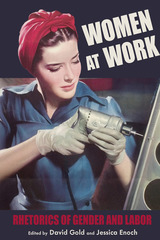
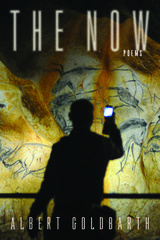
Between poems that consider the disappearance of language in an age of digital/binary communication, and poems that mourn the disappearance of fellow poets and artists, this collection attempts to stand on a nano-second that looks both backward and forward in time: the ever-shifting "now."
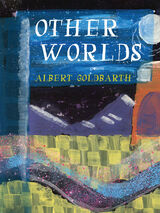
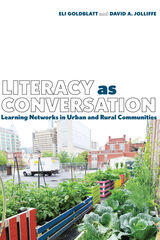

The public has voiced concern over the adverse effects of vaccines from the moment Dr. Edward Jenner introduced the first smallpox vaccine in 1796. The controversy over childhood immunization intensified in 1998, when Dr. Andrew Wakefield linked the MMR vaccine to autism. Although Wakefield’s findings were later discredited and retracted, and medical and scientific evidence suggests routine immunizations have significantly reduced life-threatening conditions like measles, whooping cough, and polio, vaccine refusal and vaccine-preventable outbreaks are on the rise. This book explores vaccine hesitancy and refusal among parents in the industrialized North. Although biomedical, public health, and popular science literature has focused on a scientifically ignorant public, the real problem, Maya J. Goldenberg argues, lies not in misunderstanding, but in mistrust. Public confidence in scientific institutions and government bodies has been shaken by fraud, research scandals, and misconduct. Her book reveals how vaccine studies sponsored by the pharmaceutical industry, compelling rhetorics from the anti-vaccine movement, and the spread of populist knowledge on social media have all contributed to a public mistrust of the scientific consensus. Importantly, it also emphasizes how historical and current discrimination in health care against marginalized communities continues to shape public perception of institutional trustworthiness. Goldenberg ultimately reframes vaccine hesitancy as a crisis of public trust rather than a war on science, arguing that having good scientific support of vaccine efficacy and safety is not enough. In a fraught communications landscape, Vaccine Hesitancy advocates for trust-building measures that focus on relationships, transparency, and justice.
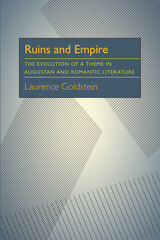
One of the most common scenes in Augustan and Romantic literature is that of a writer confronting some emblem of change and loss, most often the remains of a vanished civilization or a desolate natural landscape. Ruins and Empire traces the ruin sentiment from its earliest classical and Renaissance expressions through English literature to its establishment as a dominant theme of early American art.
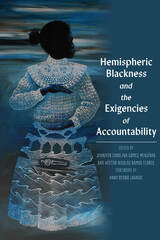
Hemispheric Blackness and the Exigencies of Accountability examines the way Afrodescendant and Black communities use the land on which they live, the rule of law, and their bodies to assert their historical, ontological, and physical presence across South, Central, and North America. Their demand for the recognition of ancestral lands, responsive policies, and human rights sheds new light on their permanent yet tenuous presence throughout the region. The authors argue that by deploying a discourse of transcontinental historical continuity, Black communities assert their presence in local, national, and international political spheres. This conceptualization of hemispheric Blackness is the driving force confronting the historical loss, dismissal, and disparagement of Black lives across the Américas. Through twelve case studies that cover a wide range of locations, their work examines contemporary manifestations of sovereignty of Black body and mind, Black-Indigenous nexuses, and national revisions that challenge more than a quincentennial of denial and state unaccountability in the hemisphere.
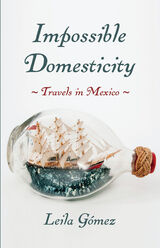
Travelers from Europe, North, and South America often perceive Mexico as a mythical place onto which they project their own cultures’ desires, fears, and anxieties. Gómez argues that Mexico’s role in these narratives was not passive and that the environment, peoples, ruins, political revolutions, and economy of Mexico were fundamental to the configuration of modern Western art and science. This project studies the images of Mexico and the ways they were contested by travelers of different national origins and trained in varied disciplines from the nineteenth to the twenty-first century. It starts with Alexander von Humboldt, the German naturalist whose fame sprang from his trip to Mexico and Latin America, and ends with Roberto Bolaño, the Chilean novelist whose work defines Mexico as an “oasis of horror.” In between, there are archaeologists, photographers, war correspondents, educators, writers, and artists for whom the trip to Mexico represented a rite of passage, a turning point in their intellectual biographies, their scientific disciplines, and their artistic practices.



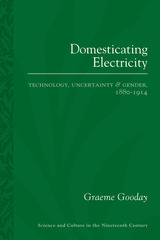


The Politics of Public Utility Regulation focuses on the important and increasingly controversial issues of utility regulation by combining a sophisticated understanding of these issues with a rigorous examination of various regulatory arrangements across the American states. It draws on interviews with participants in twelve states: public utility commissioners, commission staff members, utility company executives, governmental consumer advocates, and citizen activists. In addition to offering an up-to-date, comprehensive survey of regulatory politics at the state level, Gormley makes specific proposals for regulatory reform and emphasizes the importance (and difficulty) of assuring both expertise and accountability. Students of politics and public policy will find the state-level approach useful in examining the strategies of the “New Federalism” that transfer more and more formerly federal responsibilities to the states.
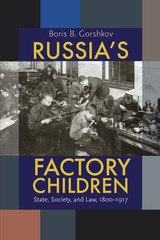
Russia's Factory Children presents the first English-language account of the changing role of children in the Russian workforce, from the onset of industrialization until the Communist Revolution of 1917, and profiles the laws that would establish children's labor rights.
In this compelling study, Boris B. Gorshkov examines the daily lives, working conditions, hours, wages, physical risks, and health dangers to children who labored in Russian factories. He also chronicles the evolving cultural mores that initially welcomed child labor practices but later shunned them.
Through extensive archival research, Gorshkov views the evolution of Russian child labor law as a reaction to the rise of industrialism and the increasing dangers of the workplace. Perhaps most remarkable is his revelation that activism, from the bourgeoisie, intellectuals, and children themselves, led to the conciliation of legislators and marked a progressive shift that would impact Russian society in the early twentieth century and beyond.

Winner of the 1998 Misha Djordjevic Award for the best book on Serbian culture in English.
Editors Gorup and Obradovic have collected stories from thirty-five outstanding writers in this first English anthology of Serbian fiction in thirty years. The anthology, representing a great variety of literary styles and themes, includes works by established writers with international reputations, as well as promising new writers spanning the generation born between 1930 and 1960. These stories may lead to a greater understanding of the current events in the former Yugoslavia.
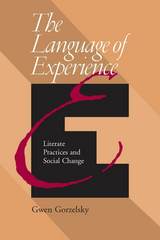
The Language of Experience examines the relationship between literacy and change--both personal and social. Gorzelsky studies three cases, two historical and one contemporary, that speak to key issues on the national education agenda.
"Struggle" is a community literacy program for urban teens and parents. It encourages them to reflect on, articulate, and revise their life goals and design and implement strategies for reaching them. To provide historical context for this and other contemporary efforts in using literacy to promote social change, Gorzelsky analyzes two radical religious and political movements of the English Civil Wars and the 1930s unionizing movement in the Pittsburgh region. Charting the similarities and differences in the function of literate practices in each case shows how different situations and contexts can foster very different outcomes.
Gorzelsky's analytic frame is drawn from Gestalt theory, which emphasizes the holistic nature of perception, communication, and learning. Through it she views how discourse and language structures interact with experience and how this interaction changes awareness and perception.
The book is methodologically innovative in its integration of a macro-social view of cultural, social, and discursive structures with a micro-social view of the potential for change embodied in them. Through her analysis and in her use of the voices of the people she studies, Gorzelsky offers a tool for analyzing individual instances of literate practices and their potential for fostering change.

The philosopher and novelist Ayn Rand (1905–1982) is a cultural phenomenon. Her books have sold more than twenty-eight million copies, and countless individuals speak of her writings as having significantly influenced their lives. Despite her popularity, Rand’s philosophy of Objectivism has received little serious attention from academic philosophers.
Concepts and Their Role in Knowledge offers scholarly analysis of key elements of Ayn Rand’s radically new approach to epistemology. The four essays, by contributors intimately familiar with this area of her work, discuss Rand’s theory of concepts—including its new account of abstraction and essence—and its central role in her epistemology; how that view leads to a distinctive conception of the justification of knowledge; her realist account of perceptual awareness and its role in the acquisition of knowledge; and finally, the implications of that theory for understanding the growth of scientific knowledge. The volume concludes with critical commentary on the essays by distinguished philosophers with differing philosophical viewpoints and the author’s responses to those commentaries.
This is the second book published in Ayn Rand Society Philosophical Studies, which was developed in conjunction with the Ayn Rand Society to offer a fuller scholarly understanding of this highly original and influential thinker. The Ayn Rand Society, an affiliated group of the American Philosophical Association, Eastern Division, seeks to foster scholarly study by philosophers of the philosophical thought and writings of Ayn Rand.
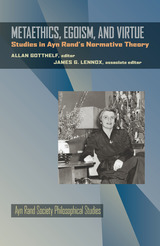
Philosopher-novelist Ayn Rand (1905–1982) is a cultural phenomenon. Her books have sold more than 25 million copies, and countless individuals speak of her writings as having significantly influenced their lives. In spite of the popular interest in her ideas, or perhaps because of it, Rand’s work has until recently received little serious attention from academics. Though best known among philosophers for her strong support of egoism in ethics and capitalism in politics, there is an increasingly widespread awareness of both the range and the systematic character of Rand’s philosophic thought. This new series, developed in conjunction with the Ayn Rand Society, an affiliated group of the American Philosophical Association, Eastern Division, seeks a fuller scholarly understanding of this highly original and influential thinker.
The first volume starts not with the metaphysical and epistemological fundamentals of Rand’s thought, but with central aspects of her ethical theory. Though her endorsement of ethical egoism is well-known—one of her most familiar essay collections is The Virtue of Selfishness—the character of her egoism is not. The chapters in this volume address the basis of her egoism in a virtue-centered normative ethics; her account of how moral norms in general are themselves based on a fundamental choice by an agent to value his own life; and how her own approach to the foundations of ethics is to be compared and contrasted with familiar approaches in the analytic ethical tradition. Philosophers interested in the objectivity of value, in the way ethical theory is (and is not) virtue-based, and in acquiring a serious understanding of an egoistic moral theory worthy of attention will find much to consider in this volume, which includes critical responses to several of its main essays.
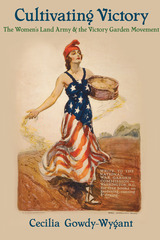
In Cultivating Victory, Cecilia Gowdy-Wygant presents a compelling study of the sea change brought about in politics, society, and gender roles by these wartime campaigns. As she demonstrates, the seeds of this transformation were sown years before the First World War by women suffragists and international women’s organizations. Gowdy-Wygant profiles the foundational organizations and significant individuals in Britain and America, such as Lady Gertrude Denman and Harriet Stanton Blatch, who directed the Women’s Land Armies and fought to leverage the wartime efforts of women to eventually win voting rights and garner new positions in the workforce and politics.
In her original transnational history, Gowdy-Wygant compares and contrasts the outcomes of war in both nations as seen through changing gender roles and women’s ties to labor, agriculture, the home, and the environment. She sheds new light on the cultural legacies left by the Women’s Land Armies and their major role in shaping national and personal identities.

Gran Paradiso National Park is Italy’s oldest, and was instrumental in preventing the extinction of the Alpine ibex between World War I and just after World War II. Today, there are more than 30,000 ibex living in the Alps, all of which descended from that last colony protected in Gran Paradiso under Mussolini’s rule. Wilko Graf von Hardenberg merges the history of conservation with the area’s social history and Italy’s larger political history to produce a multifaceted narrative about the park as an institution, the conflicts it triggered, and practices adopted to manage the ibex despite hurdles placed by the fascist regime. The book’s central argument is that, in fascist Italy, preservation—propaganda notwithstanding—was a product of the regime’s continuities with the previous liberal system. Italy’s total fascist transformation, accomplished only more than a decade after Mussolini took power, virtually unmade the early successes of preservation set in place by the nascent “nature state” in the regime’s early years. Despite this conflict, conservationists succeeded in preserving the ibex. Hardenberg positions this success within the broader history of science, conservation, and tourism in fascist Italy and the Alpine region, creating a comprehensive historical background and comparative reference to ongoing debates about the role of nature conservation in general and in relation to the state and its agencies.
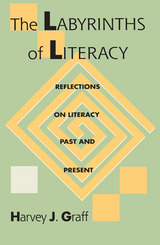
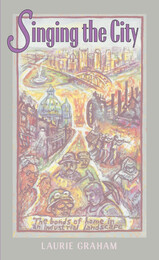
Singing the City is an eloquent tribute to a way of life largely disappearing in America, using Pittsburgh as a lens. Graham is not blind to the damage industry has done—both to people and to the environment, but she shows us that there is also a rich human story that has gone largely untold, one that reveals, in all its ambiguities, the place of the industrial landscape in the heart.
Singing the City is a celebration of a landscape that through most of its history has been unabashedly industrial. Convinced that industrial landscapes are too little understood and appreciated, Graham set out to investigate the city’s landscape, past and present, and to learn the lessons she sensed were there about living a good life. The result, told in both her voice and the distinctive voices of the people she meets, is a powerful contribution to the literature of place.
Graham begins by showing the city as an outgrowth of its geography and its geology—the factors that led to its becoming an industrial place. She describes the human investment in the area: the floods of immigrants who came to work in the mills in the late nineteenth and early twentieth centuries, their struggles within the domains of Andrew Carnegie and Henry Clay Frick. She evokes the superhuman aura of making steel by taking the reader to still functioning mills and uncovers for us a richness of tradition in ethnic neighborhoods that survives to this day.
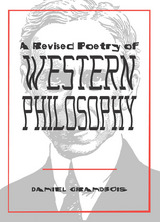
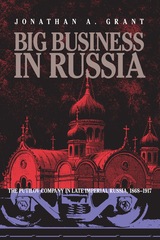
Grant has gone beyond Soviet works on the Putilov plant, examining archival documents of the company and offering critical comments on both Soviet and Western scholarship on Russian economic and social history from the perspective of this important industrial enterprise. Grant not only repeatedly demonstrates that the Putilov firm responded effectively to the changing market for its wide range of industrial products but also shows that the tsarist regime provided far more of the "systemic regularity" needed for capitalist development than generally believed. Grant's work is a significant contribution to this ongoing debate, offering a much-needed case study of Russian business history and a comparative study that extends across national boundaries. Big Business in Russia is essential reading for graduate students in Russian and European history and will also appeal to American and European business leaders eager to understand the historical background of the current economic challenges facing Russia.


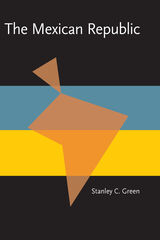

At heart, the poems themselves seek peace through close observation's associative power to reveal cohering relationships and meaning within the 21st century-and during its dark turn. In the everyday tally of "the good against the violence" the speaker asks, "why can't the line around the block on the free night/ at the museum stand for everything, why can't the shriek /of the girls in summer waves . . . / be the call and response of all people living on the earth?" A descendant of the New York school and the second wave, Greenbaum "spills" details that she simultaneously replaces-through the spiraling revelations only poems with an authentic life-force of humanism can nurture.

Today, concerns over homeland security have led thousands of Americans to volunteer for various citizen emergency response groups, such as the Civil Air Patrol, U.S. Coast Guard Auxiliary, Community Emergency Response Teams, fire units, etc. In Citizens Defending America, Martin Greenberg focuses new attention on the subject of citizen volunteerism by chronicling the nature and purpose of volunteer police units—authorized organizations of a public or private nature that work at deterring crime and/or preventing terrorism for little or no monetary compensation—in America since 1620. A number of these historical groups responsible for maintaining the civil order of the day—slave patrols, frontier posses, vice suppression societies, the American Protective League, for example—now seem controversial when viewed through a contemporary lens. Greenberg uses the history of such groups to reflect upon the nation’s past and to consider the possibilities for a safe and secure future. He also emphasizes the role of young people in the fields of security and safety, and stresses the need for more qualified, trained volunteers to help cope with man-made and natural disasters.
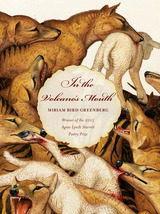
Winner of the 2017 Bob Bush Memorial Award for Best First Book of Poetry from the Texas Institute of Letters
Miriam Bird Greenberg’s stunning first collection, which roves across a lush, haunting rural America both real and imagined, observed from railyards and roadsides, evokes the world of myth (“I’d spent my childhood / in a house made of bees; on hot days honey // dripped through cracks in the ceiling,” she writes). Yet these capacious, exquisitely tensioned poems are rooted in Greenberg’s experiences hitchhiking and hopping freight trains across North America, or draw from her informal interviews with contemporary nomads, hobos, and others living on society’s edges. Beneath their surface runs a current of violence, whether at the hands of fate or men: she writes “Everyone knows // what happens to women // who hitchhike, constantly // trying a door to the other world made of lake / bottom or low forest, abandoned house // even wild animals / have rejected.” The result is a queering of On the Road, a feminist Frank Stanford at once vulnerable and canny. Richly textured, In the Volcano’s Mouth is an extraordinary portrait of life on the enchanted margins.

In selecting Suzanne Greenberg's fiction for the 2003 Drue Heinz Literature Prize, Rick Moody wrote, “A charge sometimes leveled against contemporary fiction these days is that it has abrogated its responsibility to depict civilization as it actually exists. . . . Speed-Walk replies forcefully to this aesthetic error by locating its protagonists in completely recognizable environments. . . . [They] are ever engaged by the routines of American life: walking the dog, eating at the sushi bar, doing the laundry.” Tightly written yet realistically spare, these stories provide a blueprint for survival when the unexpected is thrust into an ordinary life.

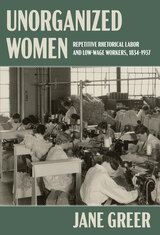
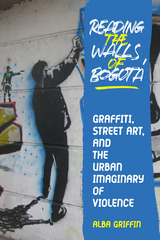




Administration in time of war has come to revolve around the President, and much of the administrative authority of the President is then delegated to extralegal agents. Grundstein's analysis of the experiences of World War I show that such delegation is inevitable: From the beginning of the war Congress delegated many powers to the Chief Executive, who, of necessity, named others to act for him in the prosecution of the war. Furthermore, Congress granted these administrative powers without formally establishing new administrative agencies with attendant Congressional oversight. Though constitutionally the President's powers are exclusively executive as distinguished from administrative, beginning with WWI, and increasing during WWII, the President has become in effect the administrator-in-chief.
Nathan Grundstein traces the evolution of a new body of administrative law delineating the unique patterns of wartime organization and administration that emerged during the twentieth century.


Runner-up, Society of Midland Authors 2002 Poetry Prize
Gabriel Gudding’s poems not only defend against the pretense and vanity of war, violence, and religion, but also against the vanity of poetry itself. These poems sometimes nestle in the lowest regions of the body, and depict invective, donnybrooks, chase scenes, and the abuse of animals, as well as the indignities and bumblings of the besotted, the lustful, the annoyed, and the stupid.
In short, Gudding seeks to reclaim the lowbrow. Dangerous, edgy, and dark, this is an innovative writer unafraid to attack the unremitting high seriousness of so much poetry, laughing with his readers as he twists the elegiac lyric "I" into a pompous little clown.

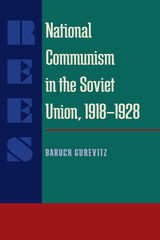
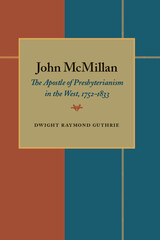

Gyger focuses on three interrelated themes: the circumstances that made Peru a fertile site for innovation in low-cost housing under a succession of very different political regimes; the influences on, and movements within, architectural culture that prompted architects to consider self-help housing as an alternative mode of practice; and the context in which international development agencies came to embrace these projects as part of their larger goals during the Cold War and beyond.
READERS
Browse our collection.
PUBLISHERS
See BiblioVault's publisher services.
STUDENT SERVICES
Files for college accessibility offices.
UChicago Accessibility Resources
home | accessibility | search | about | contact us
BiblioVault ® 2001 - 2024
The University of Chicago Press









